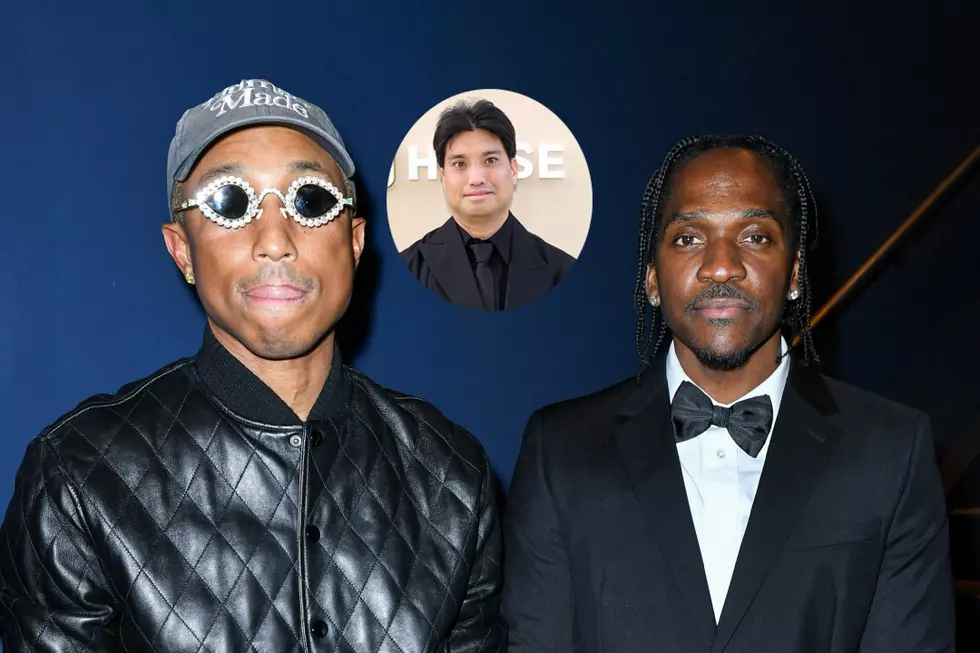
Troy Ave Recaptures Some Old School Magic On ‘New York City: The Album’
"It was Big, Jay Z, now Troy Ave here after/But Kendrick Lamar's just a weirdo rapper," says Troy Ave on "New York City," his hometown celebrating single which features prototypical New York rappers Prodigy, N.O.R.E., and Raekwon. In a post-“Control” world, this would normally come off as the typical obligatory jab from a New York rapper, but that isn’t the case here. New York City: The Album isn’t the sound of an album that’s all that interested in the progressive rap conversation or even finding its own place in that conversation. It’s an insular affair that recalls the cold ruthlessness and chest-beating confidence required to take over a turn of the millennium Brooklyn. Troy Ave isn’t looking at Lamar with furrowed eyebrows but with a turned nose. They’re on two different wavelengths.
New York City draws its influence from the eras when The Diplomats and G-Unit were the talk of the city. This isn’t just visible in the beats and rhymes, however. Troy forgoes laudable technical prowess for street narratives and braggadocios barks for delivery, the type you’d imagine Troy Ave yelling on New York’s SOB stage filled with members of his entourage with chants from the crowd following every line. He also draws from the near absurd self-assuredness from the collectives’ de facto leaders. There’s a “Chill, I got this” vibe that radiates from Troy Ave in his interviews and, fortunately, in his music. That’s what ultimately makes it one of the better releases of the year.
You’re not going to get any sort of enlightenment on this tape. It’s been said that New York City is the most American city there is (see: Anthony Trollope), and self-gratification is one of the most American of pursuits. New York City is almost nothing but. It’s hubris, it’s casual aggression, and like the cover shows, it’s Troy Ave. New York City isn’t just a throwback album despite its throwback influences.
New York City starts with one of its best cuts “Classic Feel.” Horns and high-stepping keys lift the Mally the Martian-produced track in a manner that almost feels titanic. And even though his actions are far from saintly, Troy Ave rolls through with a charming quality. “Now if he say I ain't hot I probably fucked his girl/Or did violence to his homies, took 'em up out this world,” he matter-of-factly reasons at one point. He postures himself in a similar manner on “New York City” with the heavyweight co-stars (although he does get upstaged by Raekwon a verse latter), and over the grandeur of the Rubirosa-produced on “My Grind” he’s “Harry Powder” in the flesh, willing to “cause a fucking death when I’m mad nigga/Other than that I’m cool.” It sounds like a minor inconvenience because Troy Ave is unflappable.
The album is very self-aware of what it is, too. The standard humanizing introspective cuts aren’t a commentary about the problems of society, but strictly reactionary. The “Black Girl Lost” moments are replaced by Troy Ave’s constant fights with a baby mama. At one point an old flame fellates someone else and becomes “triflin’” on AraabMuzik’s excellently produced “Regretful.” The moral of the tragic narrative of “Mama Tears” isn’t about staying away from the game—Just don’t associate with suckers, it argues. This perspective gives a sense of realness within the superficialities of New York City. It’s unashamed about how everything is about currency here. Technicality and artistic/social ambition don’t hold as much a value as street knowhow and respect. As Troy Ave’s rants in-between some tracks show, anything other than money is a foreign language.
Excess is another theme on New York City, and at the same time it’s what holds the album back. Seventeen tracks is a little long for drug-fueled rap and a worldview that rarely makes it past the Hudson River. There’s also duds like the clichéd hook on “Divas And Dimes” and the overlong “Me Against The World.” But for the most part, it looks like the powder game is a thriving business. -—Brian Josephs
More From XXL









